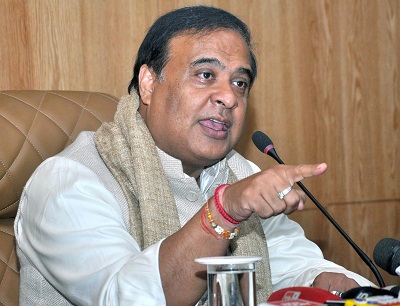Guwahati, (Asian independent) The Assam government introduced a Bill in the state assembly on Monday to penalise anyone found to have used unfair methods in recruitment examinations with a maximum sentence of 10 years in prison and a maximum fine of Rs 10 crore.
Chief Minister Himanta Biswa Sarma introduced the Assam Public Examination (Measures for Prevention of Unfair Means in Recruitment) Bill, 2024, stating that any government servant enforcing the provisions in “good faith” will receive complete immunity under the proposed law.
In the Bill’s Memorandum, Sarma stated that it gives the government the authority to prosecute anyone, including test takers, who engages in any endeavour to leak, create, sell, publish, or solve exam questions in order to help a candidate or administer exams at undesignated locations.
According to the Bill, such an individual would face a minimum five-year prison sentence, which could be extended to ten years, as well as a minimum fine of Rs 10 lakh, and a maximum fine of Rs 10 crore.
Furthermore, the introduced legislation stated that an examinee who merely engages in unfair means faces a maximum sentence of three years in prison, a fine of at least Rs 1 lakh, and a further nine months in jail should they fail to make payment.
The Bill also gives the government the authority to prevent any examinee who has been found guilty under the terms of this law from appearing in any public examination for two years.
The Bill said “the court shall make an order of recovery of any wrongful gains made by such person, by way of attachment and sale any of the assets/property movable or immovable, or both, of such person”.
According to the Bill, such an individual would face a minimum five-year prison sentence, which could be extended to ten years, as well as a minimum fine of Rs 10 lakh, and a maximum fine of Rs 10 crore.
Along with making all offences cognisable, non-bailable, and non-compoundable, the Bill also authorised the investigation of crimes by an official ranking at least as deputy superintendent of police.
To trial cases under this Act, the government would also establish special courts presided over by an Additional District and Sessions Judge or above, in collaboration with the Chief Justice of the Gauhati High Court.









